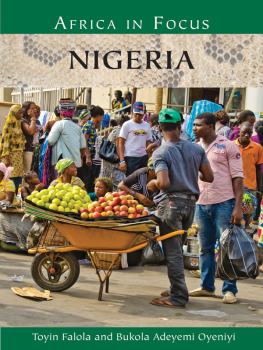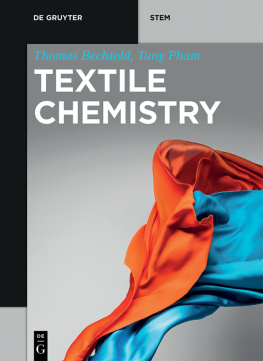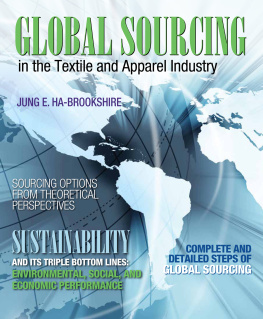
Death and the Textile Industry in Nigeria
This book draws upon thinking about the work of the dead in the context ofdeindustrializationspecifically, the decline of the textile industry in Kaduna,Nigeriaand its consequences for deceased workers families. The author shows how the dead work in various ways for Christians andMuslims who worked in KTL mill in Kaduna, not only for their familieswho still hope to receive termination remittances, but also as connections toextended family members in other parts of Nigeria and as claims to land andhouses in Kaduna. Building upon their actions as a way of thinking aboutthe ways that the dead work for the living, the author focuses on three majorthemes. The first considers the growth of the city of Kaduna as a colonialconstruct which, as the capital of the Protectorate of Northern Nigeria, wasorganized by neighborhoods, by public cemeteries, and by industrial areas.
The second theme examines the establishment of textile mills in the industrialarea and new ways of thinking about work and labor organization, time regimens,and health, particularly occupational ailments documented in mill clinicrecords. The third theme discusses the consequences of KTL mill workersdeaths for the lives of their widows and children.
This book will be of interest to scholars of African studies, developmentstudies, anthropology of work, and the history of industrialization.
Elisha P. Renne is Professor Emerita in the Departments of Anthropologyand of Afroamerican and African Studies, University of Michigan-Ann Arbor,USA.
Routledge Contemporary Africa Series
Corporate Social Responsibility and Law in Africa
Theories, Issues and Practices
Nojeem A. Amodu
Greening Industrialization in Sub-Saharan Africa
Ralph Luken and Edward Clarence-Smith
Health and Care in Old Age in Africa
Edited by Pranitha Maharaj
Rethinking African Agriculture
How Non-Agrarian Factors Shape Peasant Livelihoods
Edited by Goran Hyden, Kazuhiko Sugimura and Tadasu Tsuruta
Toward an Animist Reading of Postcolonial Trauma Literature
Reading Beyond the Single Subject
Jay Rajiva
Development-induced Displacement and Human Rights in Africa
The Kampala Convention
Romola Adeola
Death and the Textile Industry in Nigeria
Elisha P. Renne
Modern Representations of Sub-Saharan Africa
Edited by Lori Maguire, Susan Ball and Sbastien Lefait
For more information about this series, please visit: https://www.routledge.com/Routledge-Contemporary-Africa/book-series/RCAFR
Death and the Textile Industry in Nigeria
Elisha P. Renne
First published 2021
by Routledge
2 Park Square, Milton Park, Abingdon, Oxon OX14 4RN
and by Routledge
52 Vanderbilt Avenue, New York, NY 10017
Routledge is an imprint of the Taylor & Francis Group, an informa business
2021 Elisha P. Renne
The right of Elisha P. Renne to be identified as author of this work has been asserted by her in accordance with sections 77 and 78 of the Copyright, Designs and Patents Act 1988.
All rights reserved. No part of this book may be reprinted or reproduced or utilised in any form or by any electronic, mechanical, or other means, now known or hereafter invented, including photocopying and recording, or in any information storage or retrieval system, without permission in writing from the publishers.
Trademark notice : Product or corporate names may be trademarks or registered trademarks, and are used only for identification and explanation without intent to infringe.
British Library Cataloguing-in-Publication Data
A catalogue record for this book is available from the British Library
Library of Congress Cataloging-in-Publication Data
A catalog record has been requested for this book
ISBN: 978-0-367-46552-0 (hbk)
ISBN: 978-1-003-05813-7 (ebk)
Typeset in Bembo
by Deanta Global Publishing Services, Chennai, India
KTL workers, their widows, and children
James 1:27: Religion that is pure and undefiled before God, the Father, is this: to care for orphans and widows in their distress, and to keep oneself unstained by the world.
The New Testament
The Women 4:36: Pay homage to God, and make none his compeer, and be good to your parents and relatives, the orphans and the needy and the neighbours who are your relatives, and the neighbours who are strangers and the friend by your side.
The Qurn
Late Kaduna Textiles Ltd workers ID cards
Contents
Figures
Late Kaduna Textiles Ltd workers ID cards
Table
I would like to thank leaders of the Coalition of Closed Unpaid Textile Workers Association Nigeria, who generously took time to meet with me and to introduce me to many of the widows whose husbands had died after the Kaduna Textile Ltd mill closed, as well as to their children. Rahab Gajere and Adama David expertly organized our meetings, while Wordam Simdik and Ishar Iorngulum oversaw my participation in Coalition events. I am grateful to all of the widows and their children whom we interviewed and for their permission to use their materials and to take their photographs, which are included in this book. I am also grateful to former employees of Kaduna Textiles Ltd and David Whitehead & Sons who shared their experiences and insights of working at the mill during many helpful interviews, and to union officials at the National Union of Textile Garment and Tailoring Workers of Nigeria, Kaduna office. Special thanks go to Muhammed Buhari and Salihu Maiwada, Ahmadu Bello University; to Mohammadu Yahaya Waziri, Modibbo Adama University of Technology, Yola; to M.O. Umar (Director), Wuese Iorver, and Olusola Falaye of Kaduna Textiles Ltd; and to Gordon Hartley, Bernard Laverty, and Nich Rutherford, of David Whitehead & Sons, as well as to Jaclyn Kline, who facilitated connections with David Whitehead & Sons personnel. In Kano, Saidu Adhama and the late Abdulkadir DanAsabe provided insights regarding textile revival possibilities, while in Kaduna, Joseph Maigari, Kaduna State Bureau for Substance Abuse Prevention and Treatment explained the importance of rehabilitation. I also thank Musa Salih Muhammad, Arewa House, Kaduna; the staff of the Nigerian National Archives, Kaduna, and the Ministry of Information Office, Kaduna; and librarians at the University of Michigan-Ann Arbor. Garba Abubakar has continued to provide logistical support for my work in Kaduna. Finally, the Covid-19 pandemic is a reminder that we are all in this world together; those in Kaduna and Kano who have passed during the pandemic will be remembered.
While hardly an exhaustive list of all those who deserve thanks, I would like to acknowledge the special support of Yau Tanimu and Hassana Yusuf, who have helped me with my research in northern Nigeria since 1995. Together, they provided excellent counsel and information and patiently waited with me when I needed visa extensions. Hassana Yusuf continues to impress me with her willingness to pursue difficult leads as well as to accompany me through the many neighborhoods of Kaduna. As always, I owe her great thanks. I am likewise grateful to Leanne Hinves, Senior Editor, African and African Diaspora Studies, at Routledge, Sarah Silva at Deanta Global, as well as to the editorial and design staff and my copyeditor at the Press, all of whose kind but firm organization facilitated the publication process. Finally, project funding from the African Studies Center, the Department of Afroamerican and African Studies, and UROP, all of University of Michigan, Ann Arbor, and from the Pasold Foundation made initial stages of this project possible.










